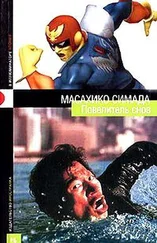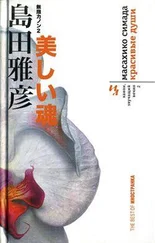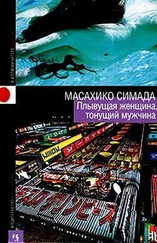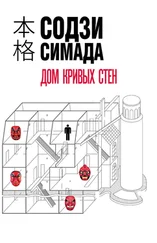For dinner, they were given a tomato and cucumber salad with hamburgers. There were also canapés of salmon roe on buttered black bread. As they sat there surrounded by a sea of Russian language, laughter, and hummed song, the two of them amused themselves by coming up with nicknames for each of the crew. The captain was “Valkewpin.” The translator was “Lipsikov.” A man who sang in a hoarse voice became “Tomwaitsky,” while the woman who served the meal was “Chubbinya.” The man who’d been working on one of the rescued refrigerators was “Siberian Electrics,” the glitzy six-foot woman was “Glitzerina,” a huge two hundred twenty-pound man called Misha became “Fatsikov,” and so on. Every time one of them came up with another name they’d laugh, and after a while a young crewman who spoke English asked with undisguised curiosity what they were talking about.
“We were wondering whether you have any Tokarevs or Kalashnikovs,” joked Kita, emboldened by the vodka.
“ Yakuza ?” somebody asked.
“We’re not yakuza . We fight the yakuza .”
“ Polis? ”
“No, we’re not the police either.”
“So what are you?” Fatsikov asked.
In his rudimentary English, Kita spelled it out. “I love her. She loves me.” This proved a hit. Gorika! cried Tomwaitsky, and everyone sang out the same word in response. Kiss! Lipsikov commanded. Apparently gorika meant “bitter,” and lovers had to kiss in order to make the vodka sweet. Not really following all this, the two were made to blushingly kiss.
Siberian Electrics came over to Kita and earnestly began to explain that Tokarevs were no good. “Makarovs are much better. Tokarevs are made in China so they’re cheap, but most of them are poorly made. Kalashnikovs also depend on whether they’re made in Russia or China. The Russian ones use fat bullets and are very destructive. If you want to buy a gun, buy a Makarov. Makarovs aim well.”
“How much does one cost?” asked Kita, and was told fifty thousand yen. But you could get one for five thousand in Vladivostok. A Tokarev cost one thousand.
A pistol suicide wasn’t a bad idea, Kita thought. It was nice and straightforward. But he didn’t have the money.
When darkness had descended, Kita left the ship to go take a look at the town. Shinobu asked him to bring her back an ice cream.
Kita took a taxi into the central shopping district, where he found a closed electric goods shop that had left the televisions running in the window. Every set, large and small, was tuned to the baseball. Two other men paused in the middle of the arcade as Kita had done, and stood with heads twisted, watching the match. A little girl just learning to walk came tottering out onto the pavement, pursued by her worried father. Kita felt he’d seen the same thing happen somewhere before. No doubt this little scene had also been played out yesterday and would be played out tomorrow, in other shopping arcades in other towns, repeated again and again without anyone ever noticing.
The little girl about a year old looked up into Kita’s face. Kita smiled back, with a sudden sense that he’d come across this particular child before. This man’s going to die the day after tomorrow, Kita told her silently. You’re going to go right on living for a long time. You live well, won’t you? Even if one day here or there doesn’t make much difference to you, with your long life to come . Then he walked off.
He stepped into a telephone booth, and called the merchant of death. “Hey man, where are you?” Yashiro said casually when he heard Kita’s voice.
“Give me back my money. I’m in a fix.”
“You want some money? I’ll send it through. You’re in Niigata, right? Where are you hiding out? Is Shinobu OK? You’ve finally stuck your neck out, haven’t you? It’s do or die. I admire you. Have you seen the TV news? You’re a fantastic promoter. You’ve made Shinobu a star overnight.”
“That doesn’t benefit me one bit.”
“Shinobu’s got the main part tonight. No one knows you’re the kidnapper yet. I’ll bet you’re holed up somewhere out of sight with her, eh? You won’t be out wandering the streets together, that’s for sure.”
“Her production manager sussed that it was me.”
“Don’t you worry. That guy’s tight-lipped. He won’t breathe a word to the media or the police. The abductor’s a mystery man. No one knows the name Yoshio Kita. As long as you’re alone, you’re just another passerby to everyone. I may call it an abduction, but to everyone else it’s just some drunk’s joke.”
“Give me back my money. And keep your nose out of my business from now on.”
“I haven’t stolen your money. There’d be trouble if you escaped abroad, see, so I’ve put a hold on your bank account, that’s all. I know a doctor who lives in Niigata, so I’ll send money to him. I’ll give you his number and you can contact him. You’ll be OK with two hundred thousand, won’t you?”
Yashiro dictated the doctor’s cell phone number. Kita wrote it on his hand, and asked his name. Yashiro gave him the name of a gangster boss he knew well.
“Give him a call in half an hour. He won’t just help with the money, he’ll be able to do other things for you too.”
Kita’s ball pen added the name Kiyoshi Okochi to his palm.
Kidnap the Kidnapper!
A little after three in the afternoon, the image of Shinobu Yoimachi had appeared via terrestrial broadcast signal in the living rooms of the nation. Even her suicide wouldn’t have brought her such quality attention – once it’s over, the only thing left is to sigh and move on, after all. But in this case there was the cliffhanger over whether she’d be rescued or killed, and the thrilled audience was on tenterhooks.
The woman who appeared on the screen at the same time every afternoon spoke to the audience with the same expression as always.
“The singer Shinobu Yoimachi has been kidnapped by an unidentified man, and her whereabouts are unknown. At a little after eleven last night, the head of Ms Yoimachi’s production studio received a telephone call at his home from a man purporting to be the kidnapper, demanding payment of thirty million yen ransom. The man demanded that the money be paid in the form of a donation to the International Red Cross, and that details of the kidnapping be broadcast on all key stations. The production manager has complied with the demand and donated the money as requested, out of fears for the safety of Ms Yoimachi. The kidnapper has also contacted SM Television and announced other demands directed at the government, including the abolition of United States military bases on Okinawa, mass resignation of Cabinet members, and abolition of the death penalty.”
At this point, the recording of Kita’s conversation with the head of the SM News Section was aired. A forensic psychologist had been invited onto the program, and he now set about attempting a plausible psychoanalysis of the kidnapper’s motives, based on the slender evidence available.
“We know that abduction has a low success rate. This is because of the considerable risk to the kidnapper at the time of handover of the ransom money. Police involved with the case consider the safety of the victim to be paramount and ask for media restraint in reporting the incident, but in this case media reports are being made on the demand of the kidnapper. He admits that his demands to the government are unlikely to be met, but has chosen to voice them regardless. I believe his demand that the ransom be donated rather than given to him is a form of ‘crime for kicks,’ with the aim of taking his revenge against society. There may well be a perverted idolization of Ms Yoimachi behind his actions as well. One thing’s certain, this is a form of abduction never seen before.”
Читать дальше












